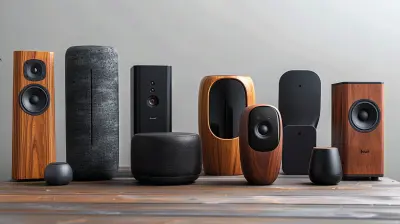Different Smart Speaker Brands Compared: Which One is Right for You?
20 October 2025
Smart speakers have gone from luxury gadgets to everyday essentials. Whether you want to stream music, control your smart home, set reminders, or just chat with a virtual assistant, there’s a smart speaker out there calling your name. But with so many brands on the market—each offering different features, voice assistants, and price points—it’s easy to feel like you're drowning in tech jargon.
So, which smart speaker brand deserves a spot on your nightstand, kitchen counter, or work desk? Let’s break it down in plain English and help you figure it out.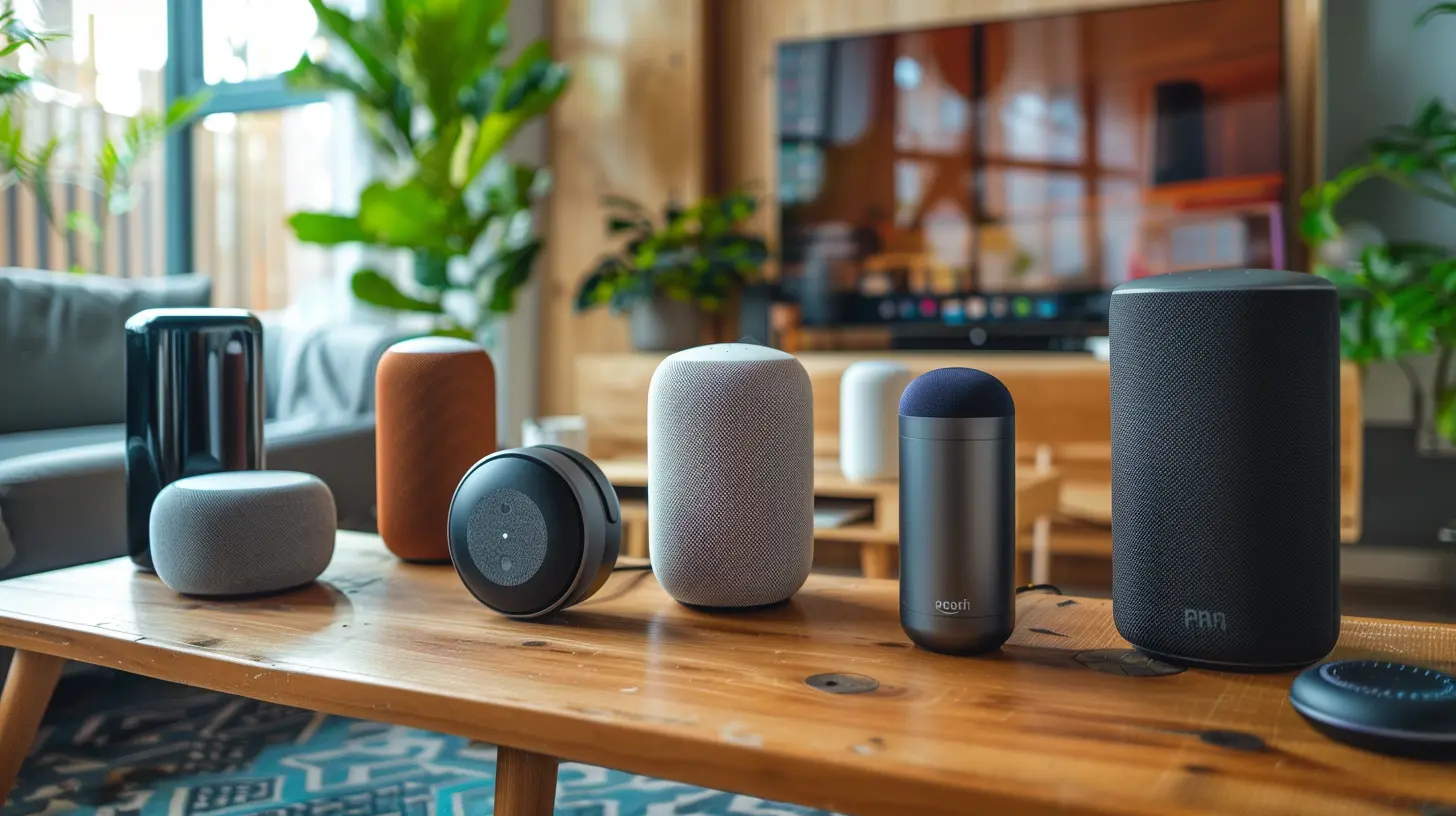
🎙️ What Is a Smart Speaker Anyway?
Before we start comparing brands, let’s clear the air on what a smart speaker actually is. Think of it as your techy personal assistant that lives in a speaker. It responds to voice commands, streams music, answers questions, controls smart home devices, reads the news, and even cracks a joke when you need one.Depending on which brand you go for, you’ll get a different voice assistant, such as Alexa, Google Assistant, or Siri.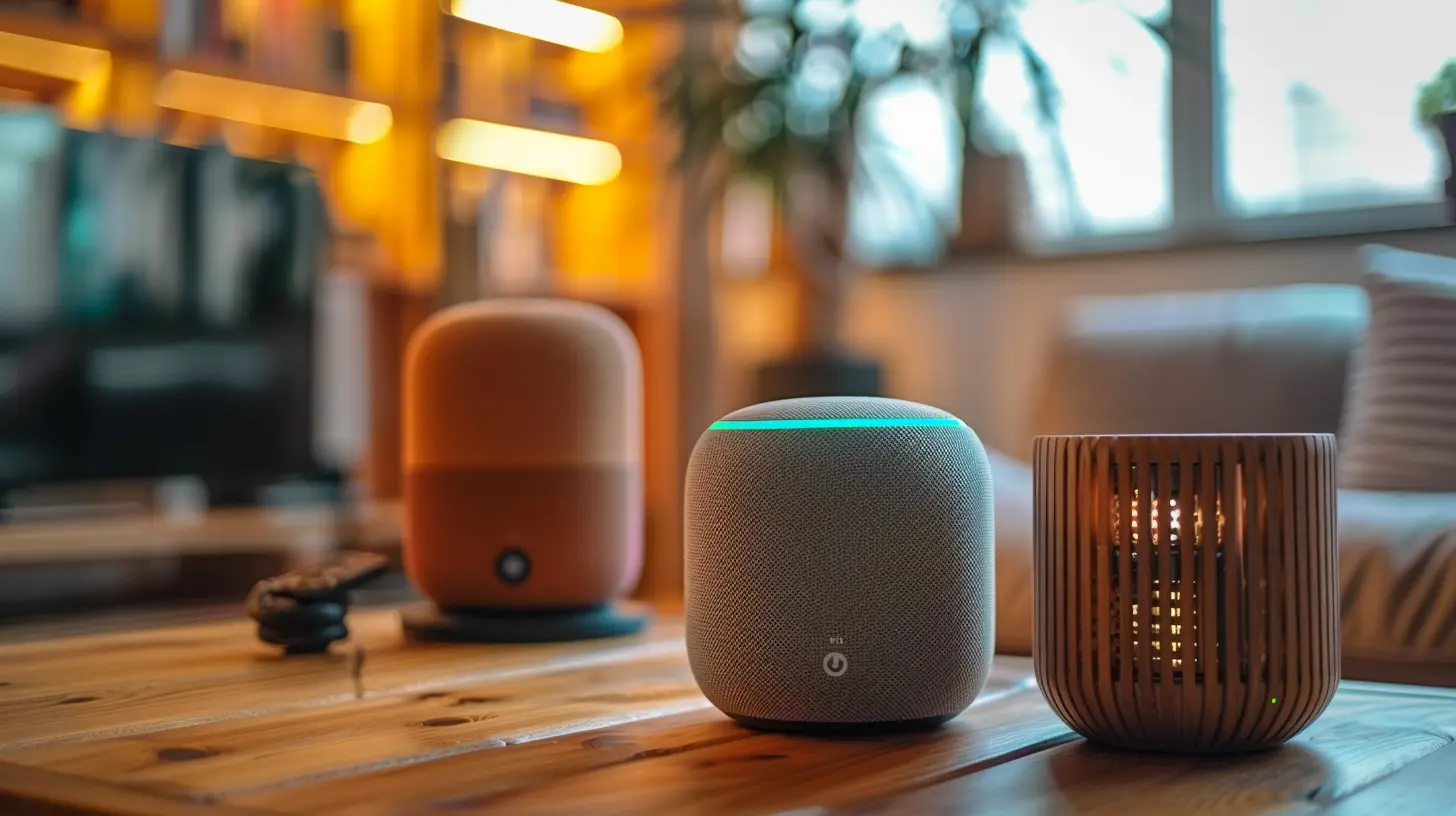
🏆 The Big Players in the Smart Speaker Game
There are tons of smart speakers out there, but let’s focus on the top five most talked-about brands:1. Amazon Echo (Alexa)
2. Google Nest (Google Assistant)
3. Apple HomePod (Siri)
4. Sonos (Multi-platform integration)
5. Bose (Premium sound with Alexa/Google)
Each brand has its strengths and quirks. Let’s dig into each.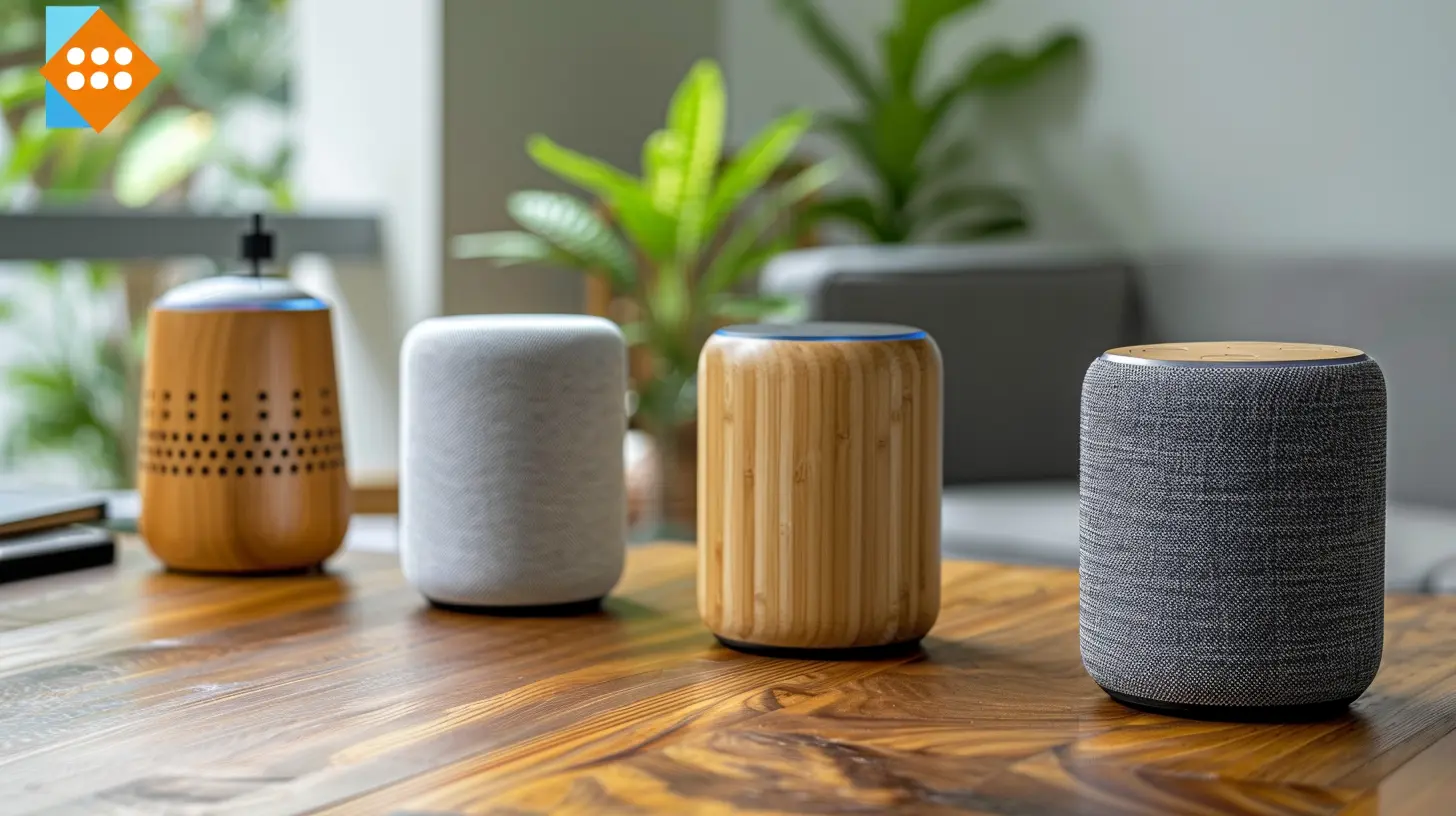
🛠️ Amazon Echo – The All-Rounder
If smart speakers had a popularity contest, Amazon Echo would probably win. Powered by Alexa, Amazon’s voice assistant, Echo devices are extremely versatile.✅ Pros:
- Huge selection: From the budget-friendly Echo Dot to the high-end Echo Studio.- Smart home integration: Works with tons of smart devices.
- Alexa Skills: Think of these like apps that give Alexa extra abilities.
- Affordable options: You can get started for under $50.
❌ Cons:
- Privacy concerns: Some users are wary of always-on microphones.- Sound quality: Lower-end Echo devices (like Echo Dot) don't pack much audio punch.
Best for:
People who want a flexible, affordable assistant with lots of smart home compatibility.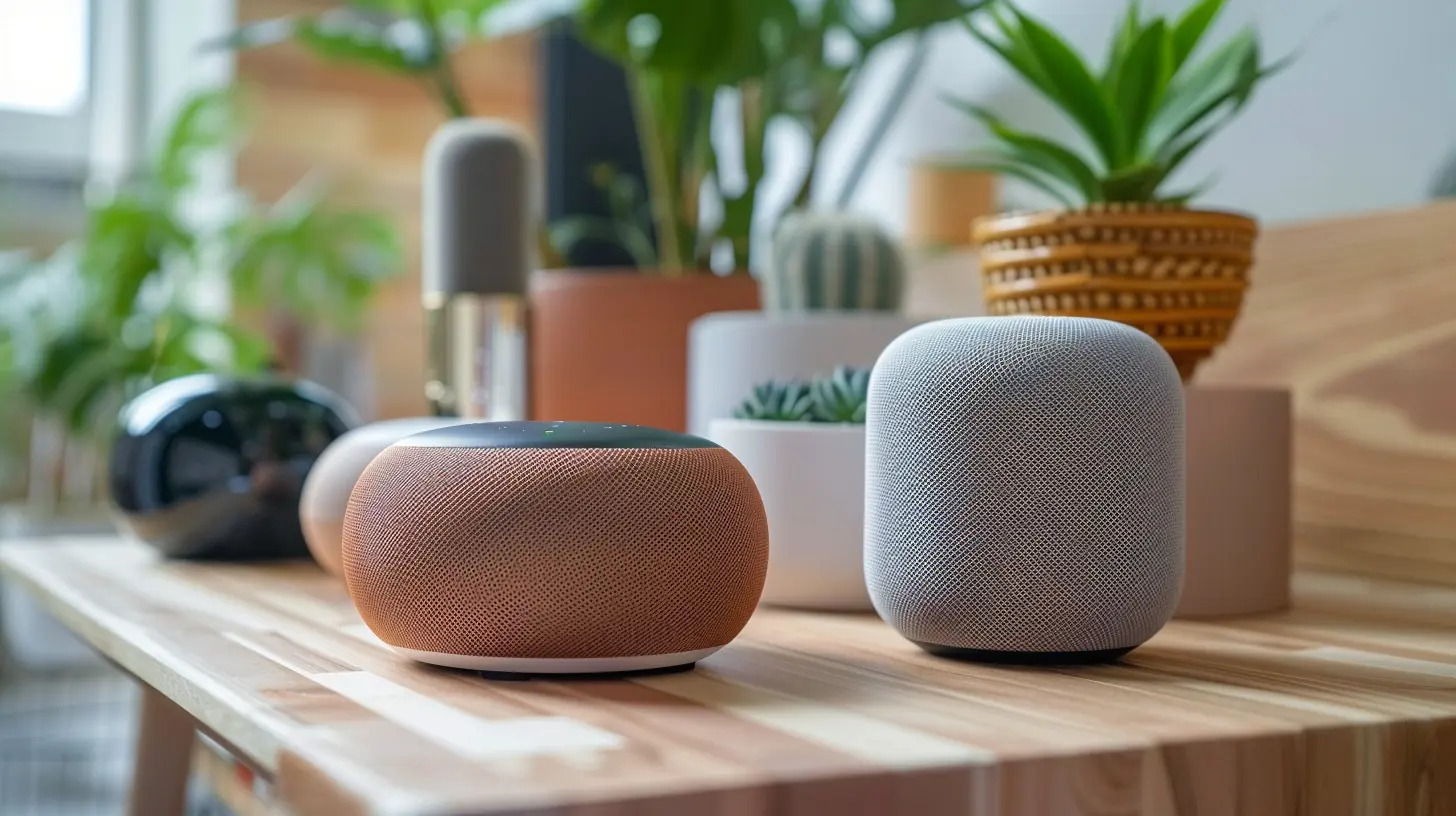
📣 Google Nest – The Brainiac
Google Nest speakers (previously Google Home) are powered by Google Assistant, which means you’re tapping into Google’s search engine smarts. If you're deep in the Google ecosystem (Gmail, Calendar, Android), this one is a no-brainer.✅ Pros:
- Superior search ability: Answers questions like a champ.- Great language support: Handles multi-language households well.
- Google ecosystem integration: Plays nice with Android, Chromecast, Google Calendar, etc.
- Natural conversations: It understands context better than others.
❌ Cons:
- Limited third-party device support: Works best with Google-approved products.- Fewer hardware options: Not as varied as Amazon’s lineup.
Best for:
Android users and Google fans who want a highly intelligent assistant.🍏 Apple HomePod – The Audiophile’s Pick
Apple’s smart speaker, the HomePod (and its little sibling, the HomePod Mini), is known for one thing: amazing sound. Powered by Siri, it’s designed for folks who are already in the Apple ecosystem.✅ Pros:
- Excellent audio quality: Rich, room-filling sound.- Tight Apple integration: Syncs seamlessly with iPhone, Apple Music, HomeKit devices.
- Privacy-focused: Apple’s stance on data protection is solid.
❌ Cons:
- Pricey: Premium feel comes at a premium cost.- Limited compatibility: Doesn’t play well with non-Apple systems or services.
- Siri’s limitations: Not as “smart” as Google Assistant.
Best for:
Die-hard Apple users who want top-tier sound and already use Siri regularly.🔊 Sonos – The Sound Maestro
Sonos smart speakers combine premium sound with support for multiple assistants. That’s right, you can choose between Alexa and Google Assistant—or opt out of voice control entirely.✅ Pros:
- Phenomenal audio: Best-in-class sound, especially for multi-room setups.- Flexible voice assistant options: You’re not locked into one assistant.
- Multi-room audio: Easily syncs across different rooms.
- Streaming service support: Works with almost every music service out there.
❌ Cons:
- Expensive: High-end audio comes with a high-end price tag.- Complicated setup: Not as plug-and-play as others.
Best for:
Audio lovers who want flexibility and already have (or want) a Sonos multi-room system.🎧 Bose – Premium Sound Meets Simplicity
Bose jumped into the smart speaker game a bit later, but it brought its legendary sound quality along. Bose smart speakers support both Alexa and Google Assistant, and are a great blend of performance and design.✅ Pros:
- Signature audio quality: Clear and balanced—great for all genres.- Elegant design: Looks classy anywhere you place it.
- Voice assistant support: Use either Alexa or Google Assistant.
❌ Cons:
- High price point: You're paying for the name and quality.- Limited smart home features: Not as robust as Echo or Nest.
- Fewer models: Less variety to choose from.
Best for:
Folks who care more about sound and aesthetics than deep smart home integration.🎯 Which One Is Right for You?
Here’s where the rubber meets the road. Choosing a smart speaker is a bit like choosing a sidekick—you want the one that best fits your lifestyle. Let’s break it down:If You're Budget-Conscious:
Go with the Amazon Echo Dot. It’s cheap, cheerful, and gets the job done.If You’re Deep in Android/Google Apps:
Google Nest Mini or Nest Audio will feel like second nature.If You're Team Apple:
The HomePod Mini integrates perfectly with your iPhone, iCloud, and Apple Music.If Sound is King:
Either Sonos One or Bose Home Speaker 500 will have you dancing in your kitchen.If You Want Flexible Voice Assistants:
Sonos is your best bet—it works with both Alexa and Google Assistant.💡 Hidden Gems & Brands to Watch
Beyond the big five, there are some under-the-radar brands worth mentioning:- Harman Kardon Invoke: Powered by Microsoft’s now-defunct Cortana, discontinued but sounded great.
- Lenovo Smart Clock: A tiny but helpful bedside companion powered by Google Assistant.
- Facebook Portal: Designed more for video calls, but also works as a smart speaker with Alexa.
These might not be for everyone, but if you have specific needs like video chatting, small desk space, or niche ecosystems, it’s good to know your options.
🧠 AI and Privacy – What Should You Know?
One thing that often comes up with smart speakers is privacy. After all, these devices are literally listening for their wake word 24/7. While they've all made strides in offering better controls—like mute buttons, voice history deletion, and privacy dashboards—it’s something you should be aware of.If privacy is high on your list:
- Apple is the most privacy-conscious.
- Google and Amazon offer transparency but collect more data.
- Sonos and Bose give you the option to skip voice assistants entirely.
🛒 Quick Comparison Table
| Brand | Assistant(s) | Price Range | Best Feature | Not Great At ||--------------|---------------------|-------------|-------------------------------|----------------------------|
| Amazon Echo | Alexa | $30 - $200 | Smart home control | Audio quality (low-end) |
| Google Nest | Google Assistant | $30 - $150 | Web search + Google services | Smart home device range |
| Apple HomePod| Siri | $100 - $300 | Sound + Apple ecosystem | Compatibility |
| Sonos | Alexa / Google | $180 - $600 | Best-in-class audio | Price and setup complexity |
| Bose | Alexa / Google | $200 - $400 | Clear, rich sound | Smart home compatibility |
✨ Final Thoughts
At the end of the day, picking the right smart speaker comes down to three things: your ecosystem (Apple, Google, Amazon), your budget, and what you value most (sound, smarts, or style).Don’t stress too much—none of them are a "bad" choice. But finding the right one? That’s when the magic really starts to happen. Whether you’re asking for your favorite playlist, adjusting your thermostat, or just yelling at Alexa to tell you a dad joke, the right smart speaker makes tech feel... well, human.
Now the big question is: are you ready to talk back to your speaker?
all images in this post were generated using AI tools
Category:
Smart SpeakersAuthor:

Marcus Gray
Discussion
rate this article
1 comments
Zareth Barrett
Consider ecosystem compatibility over brand alone.
October 20, 2025 at 12:46 PM

Marcus Gray
Absolutely! Choosing a smart speaker that fits well with your existing ecosystem ensures seamless integration and functionality.
